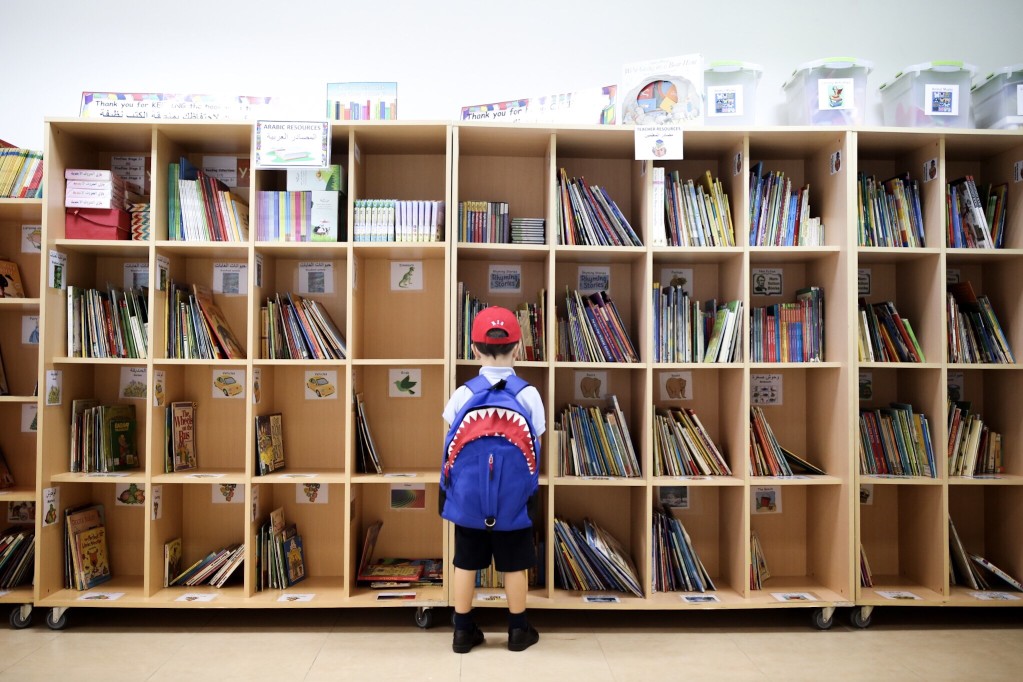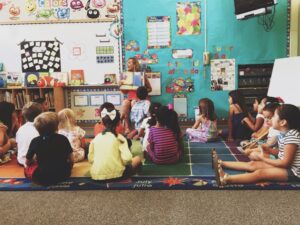When you’re raising children, life becomes a series of decisions. Between cooking, cleaning, bath time, and bedtime, how are you supposed to figure out the best fit for your child at school? There’s already enough to think about without having to contemplate the differences between preschool and pre-kindergarten. Don’t stress! We’ve covered all the bases by outlining the similarities, differences, and everything you need to know in between about all things childcare, preschool, and pre-k.
Similarities Between Preschool and Pre-Kindergarten
Some parents are probably thinking, “Huh? There’s a difference between them? I thought they were the same thing!” and we don’t blame you. They might even seem the same as childcare centers from an outside perspective.
They have a lot in common, including:
- a playful learning environment for kids
- engage in hands-on learning
- focus on teaching math, reading, writing, and science skills
- aim to improve social and emotional skills
Playful Learning in Preschool and Pre-Kindergarten
Preschool, pre-k, and childcare focus on creating a playful and fun learning environment for kids. We don’t have to tell you how hard it is to keep a little kid’s attention; you’re raising one! Keeping their environment light and positive rather than rigid keeps them eager to learn. Preschoolers and pre-kindergarteners are always on the go, so both have days packed with educational activities like crafts, games, and music.
Hands-on Learning in Preschool and Pre-Kindergarten
Children don’t absorb information as adults do; when you tell them something, it might seem like it’s going in one ear and out the other. Hands-on learning is the best approach for kids at the preschool and pre-kindergarten stage. It gets them involved and will stick in their minds longer than a lecture would.
Plus, what sounds more exciting to you: Listening to someone talk about volcanoes or actually getting to build a volcano? Hands-on learning will leave your kids eager to go back and learn more the next day. Even though childcare doesn’t aim to teach your kids specific skills, they’ll still do lots of crafts and activities to get their minds engaged. Added bonus: there is no need to splurge on decor; your kiddo will be coming home with lots of projects to cover your home!
The Curriculum in Preschool and Pre-Kindergarten
Yes, there are some differences in how kids learn in preschool vs. pre-kindergarten, but the general curriculum is the same. They are more advanced than a childcare center because they have a curriculum to help children learn. Kids are just starting to learn at this stage, so you won’t see anything crazy like algebra or chemistry on their homework. They are getting to know the basics, like the alphabet, reading, numbers, etc. In addition to language and math skills, they will learn more about science. Obviously, they won’t have to fill out the periodic table, but they will learn about the seasons, weather, and animals on Earth.
Social and Emotional Skills in Preschool and Pre-Kindergarten
The most crucial part of any preschool or pre-kindergarten is that your child gains social and emotional skills. Child care or pre-k might be one of their first chances to express themselves and play with other kids their age. The teachers will work with your child and their classmates to improve communication and encourage kindness. They will learn how to understand their feelings and handle them without crying, screaming, or throwing a fit. Kids have such sweet little souls, and they just need help dealing with their emotions, so they don’t turn from angel to Sour Patch Kid.
Differences Between Preschool and Pre-Kindergarten
At this point, you might still feel as if preschool and pre-kindergarten actually are the same thing, but some key differences set the two apart. Some ways you can tell them apart are:
- age
- level of skills
- goals and content of the curriculum
Preschool vs. Pre-Kindergarten Age
The significant difference between preschool and pre-kindergarten is the age of the kids. You can start sending them off to preschool as early as 2-4, but pre-k doesn’t start until ages 4-5. All those years give lots of time to get your morning routine mastered, so you’re not still the last parent in the drop-off line when your kids are in elementary school.
Level of Skills in Preschool vs. Pre-Kindergarten
Every kid learns at an individual pace, developing skills in their own time. What’s easy for your child might be difficult for another, and vice versa. Whatever your kiddo’s strong suits are, preschool and pre-kindergarten will nurture those areas and assist them when things seem a little cloudy. Preschool is all about assessing their abilities and figuring out how to help them be their best self. They might not have their times tables mastered before the end of preschool, but they will be more kind, social, and willing to learn.
Pre-kindergarten builds the foundation for your child’s school experience. It gets them ready for kindergarten, setting them on the right foot for their first year of “big kid school.” Kindergarten seems like so much fun; it’s hard to believe they’re learning the most crucial skills they need for the rest of their life! Okay, that seems super dramatic, but this is when they’re learning letters, words, and every other basic concept we use daily. Getting your child ahead of the game with pre-k will guarantee they have all the skills they need to be a star student in kindergarten.
Goals of Content and Curriculum in Preschool vs. Pre-Kindergarten
Both childcare and pre-k involve lots of playtime, but pre-kindergarteners must know how to get down to business! The main goal of pre-kindergarten is to prepare your child for full-time school. Does your preschooler not quite have their ABC’s down yet? Maybe counting just hasn’t been their thing? Send them to pre-k to make sure they have all their necessary skills mastered before heading off to kindergarten. They will learn more advanced reading and writing skills that will make the following school year easier.
Preschool teaches kids basic reading, math, writing, and science skills, but it focuses more on their social and emotional development. For many little ones, early education is the first time they interact with other kids in a group setting. Imagine how overwhelmed and excited you’d feel in a school or childcare center in a room full of people your age when you’ve been stuck with your boring old mom for the past four or so years (Just kidding, moms, you’re great!). Little kids need help understanding and dealing with their emotions and knowing how to express themselves among their peers.
Are They Both Just Glorified Child Care?
NO! Believe it or not, preschool and pre-k provide your kids with a lot more knowledge than the average childcare center. Childcare is fantastic for giving your kids some well needed social interaction and playtime, but you can’t count on it to get them ready for kindergarten. Childcare centers are meant to provide care for your kids while you work, run errands, or take some well-deserved mommy-time. They don’t have a curriculum set to teach your child the skills they need to succeed throughout school.
Now that you know all the ins and outs of early education, pre-kindergarten, and childcare, you should feel confident in picking the school that’s best for your little learner. Research local schools, see what your community has to offer, check online reviews, and ask the mommy Facebook groups for recommendations. Your little one will be a genius in no time!


